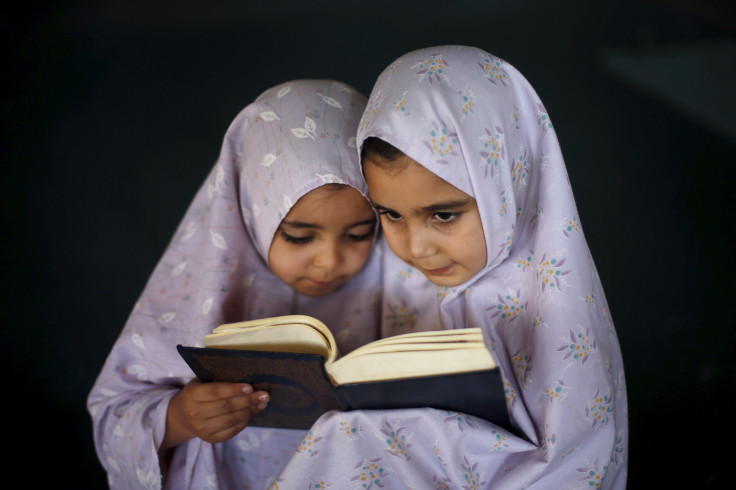Ramadan 2015: Fasting Restrictions At Four British Schools Raise Questions About When Children Should Begin Abstaining From Daytime Food And Drink

At what age should Muslim children begin to abstain from eating and drinking during the daylight hours of Ramadan? With four days to go before the holy month for fasting and spiritual reflection begins Wednesday, the operator of four British primary schools has issued its own ruling on the matter.
“Since the school policy and Islamic law have the same purpose i.e. to safeguard the health and education of the child, the policy of all schools within the Lion Academy Trust does not allow any children attending the schools to fast,” the Lion Academy Trust said in a letter sent to parents Wednesday.
While the trust is not imposing an outright ban, its administrators are requiring parents “to meet with your Head of School individually” to make necessary arrangements. The Barclay Primary School in East London -- one of the schools operated by the trust -- said the decision was based on “a number of children who [previously] became ill and children who fainted or who have been unable to fully access the school curriculum in their attempt to fast,” according to the Telegraph.
Barclay Primary School in East #London bans Muslim student from fasting Ramadan. That's perfect, force feeding kids into European laiceté.
- Tania El Khoury (@taniaelk) June 11, 2015The issue is complicated because the age of adolescence -- compulsory fasting for practicing Muslims starts at puberty -- is not clearly defined: In the eyes of certain observers, it can begin in some children as young as 10 or 11, which is close to the end of primary-school age. Also, some Muslim households adhere to the belief that children should be taught to recognize the importance of Ramadan fasting even before they’re required to do so.
“While fasting is not considered compulsory in childhood, many children endeavour to complete as many [daily] fasts as possible as practice for later life,” according to the Islamic Society of North America.
Observance of Ramadan is one of the key tenets of Islam. Recognized by all Muslims, the month of spiritual reflection compels healthy adults to avoid eating and drinking between sunrise and sunset. Muslims believe this promotes empathy for the poor who do not have enough to eat and engenders self-discipline. The last 10 days of the month are the most important, in which many Muslims read the entire Quran alone or in mosque gatherings. The ten days are followed by Eid al-Fitr, a major religious holiday marked by family celebrations and donations to the needy, a practice known as Zakat al-Fitr.
Fasting is not required among those who are pregnant or sick or those whose health could be harmed by it, such as diabetics and outdoor laborers in hot areas who would risk heat stroke without periodic hydration.
© Copyright IBTimes 2024. All rights reserved.






















